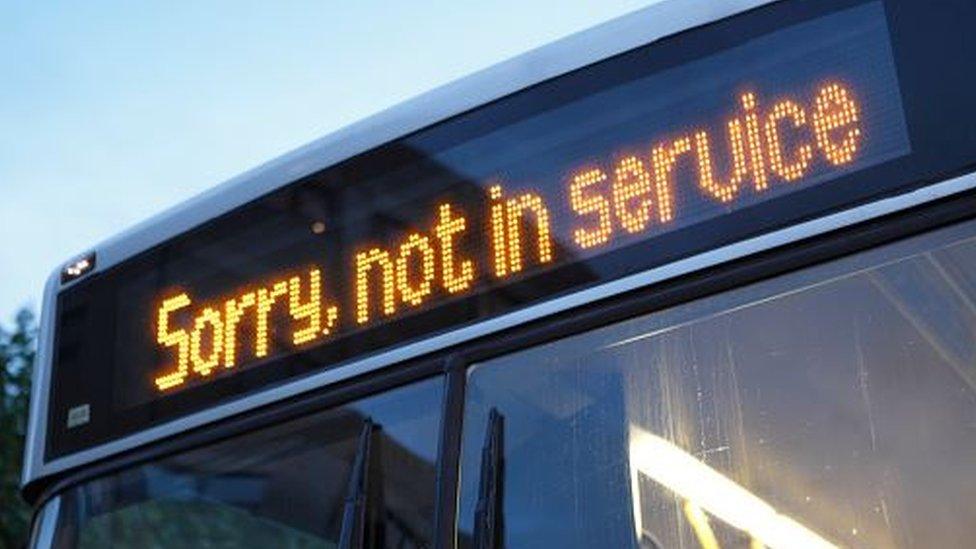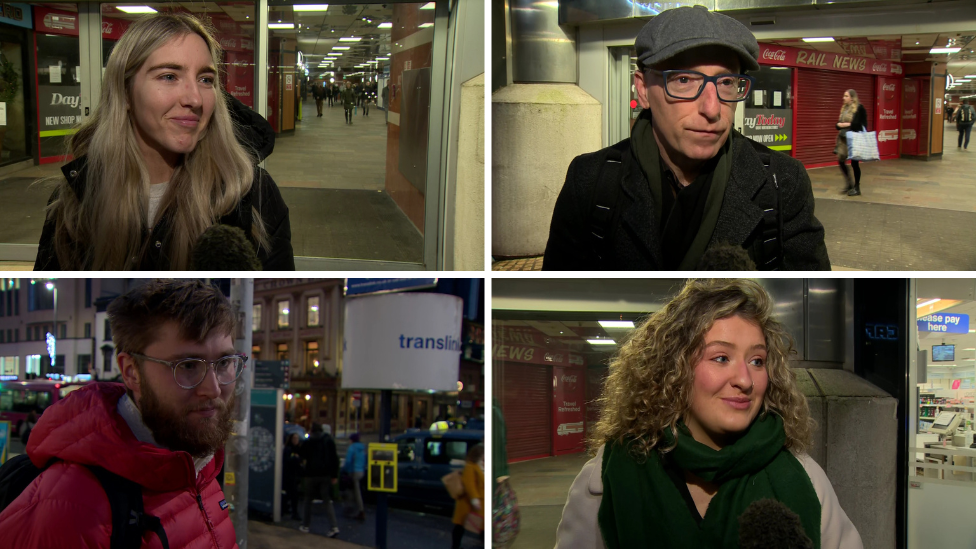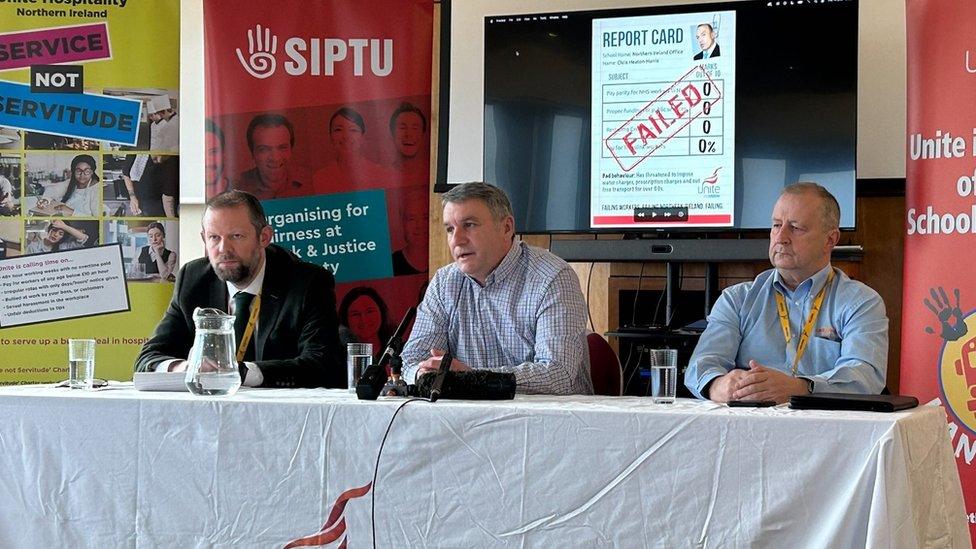Translink: Bus and train strikes to go ahead, unions confirm
- Published

Three further strikes by public transport workers in Northern Ireland will go ahead before Christmas, trade unions have confirmed.
Buses and trains will be affected by the action on 15, 16 and 22 December.
In a joint press conference on Thursday, Unite, GMB and SIPTU called for the Northern Ireland Secretary to increase pay for members.
Representatives of the hospitality sector in Northern Ireland have criticised the action.
The Education Authority said it expected "significant disruption to school transport" as a result of the strike on Friday.
"Over 57,000 children and young people in receipt of travel passes will potentially be impacted, as well as fare paying pupils, a spokesperson said.
Northern Ireland's political parties are currently engaged in talks with the government about a proposed financial package if Stormont is restored.
This would include provision for public sector pay increases.
A previous date of strike action by transport staff caused widespread disruption on 1 December.

'I'll suck it up tomorrow' - the view from the station
BBC News NI asked commuters at Great Victoria Street Station on Thursday morning for their views on the strike, with many people voicing their support.
Some punters acknowledged that a lack of public transport would cause annoyance, but nobody questioned the workers' cause for dispute.
All members of the public questioned by BBC News NI said they were sympathetic to Translink staff and believe they deserve a wage increase.
One woman said: "Obviously it's not ideal… I do support them, definitely, I think more needs to be done about the cost of living."

Another said: "It's a little bit inconvenient but I completely understand why it's going on."
"It's just a bit annoying, you can't get the bus to go to work or go drinking in town," one said. "Last weekend [1 December strike] I had to get a taxi home, it's just an extra inconvenience for going out in the town."
But, when asked if he supported the strikers, he said he did: "They have to do what they have to do."
Another commuter said he will "suck it up" and accept the inconvenience: "I think they deserve it, they work hard, I'll work from home tomorrow."

'No choice but to strike'
Davy Thompson, of Unite, said he wanted to dismiss speculation the strikes could be called off and said members were taking a "proportionate" response.

Trade union leaders held a press conference on Thursday
"Tomorrow (Friday's strike) is going ahead on the basis that we do not have any sort of pay offer from the company and the company's rationale is that there's been no budget set by the secretary of state," Mr Thompson explained.
"That's not acceptable to us."
GMB's Peter Macklin said the last thing members wanted was to cause inconvenience for the public, but they had been left with "no choice".
SIPTU regional organiser Niall McNally added his members wanted public transport to be "funded properly".
"We call on the secretary of state to answer the two letters we've sent, to engage and get this matter resolved," he added.
'Not targeting hospitality'
Concerns have been raised about the impact of the industrial action on pubs, restaurants and retailers in Northern Ireland.
Hospitality Ulster chief executive Colin Neill and Retail NI chief executive Glyn Roberts said that the strikes fall around three of the busiest days of the year for the hospitality and retail sectors.
However, Mr Thompson said the unions "haven't targeted the hospitality industry".
"We have taken action in a front-facing public sector area which impacts across Northern Ireland," he explained.
"Rather than hospitality saying 'you're going to destroy infrastructure in Belfast', why not spread the business out. If you're in Lisburn, instead of having your dinner in Belfast, have it in Lisburn."
Related topics
- Published6 December 2023
